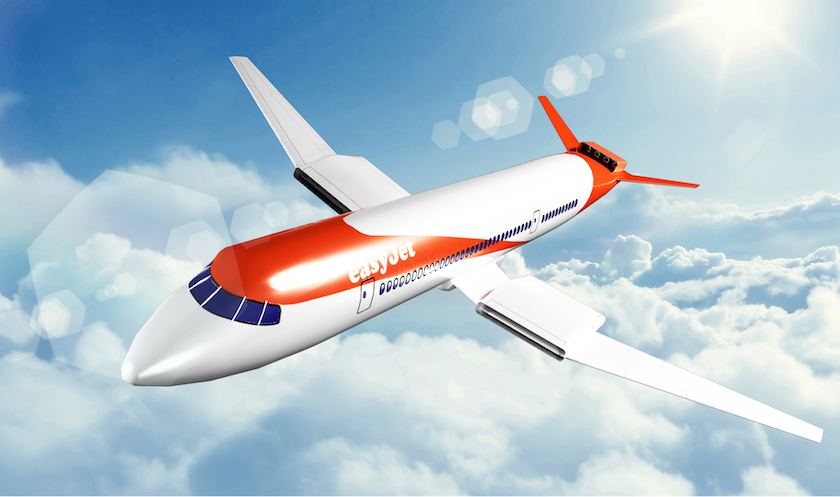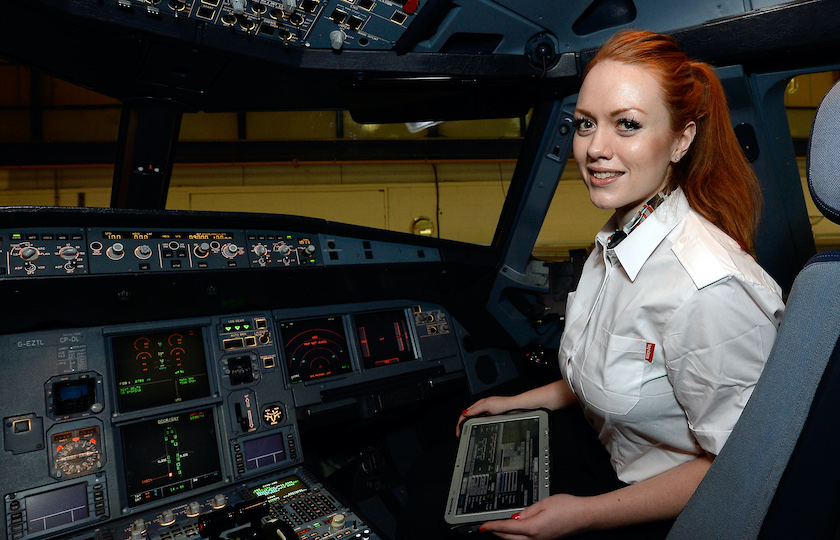UK discount airline EasyJet has joined the Race to Zero, the UN-backed global campaign to achieve net-zero carbon emissions by 2050 at the latest.
But EasyJet is aiming to do a step better than that, adopting an interim science-based target for 2035, promising to file its roadmap for validation within a few months.
Airlines are under increasing pressure to reduce their carbon footprints as one of the most visible major contributors to climate change, responsible for 2.5 per cent of global emissions. While new electric aircraft technologies and other initiatives are under development and getting closer to commercial use, in the meantime carriers are looking to reduce their environmental impact in a variety of ways – from fuel technologies to reducing in-cabin food waste and eliminating single-use cutlery and other inflight amenities.
In a statement, EasyJet said it believes the aviation industry needs to make “radical changes” and is working with Airbus and Wright Electric to accelerate the development of zero-emission technologies. The airline is optimistic it will be able to begin carrying passengers on planes powered by hydrogen-combustion, hydrogen-electric or a hybrid of both by the mid to late-2030s.

“Our ambition is to ultimately achieve net-zero emissions flying in the UK and across Europe and we are proactively working … to help support and champion zero-emission technologies for passenger planes of the future,” said EasyJet CEO Johan Lundgren.
“Climate change is an issue which we all have to tackle – including us at EasyJet. We have a responsibility to minimise the impact of our flights and we are working very hard to make this happen; from efficient flying and fleet renewal to being the only major European carrier that is offsetting the carbon emissions from the fuel used for all its flights on behalf of all its customers.
The announcement was made during the second week of COP26 and was immediately welcomed by UK aviation minister Robert Courts.
“EasyJet is stepping up to the challenge – putting in place a net-zero roadmap which will help secure a sustainable future for the sector and create green jobs in the process,” he said.
Part of the reason that EasyJet is so confident it can meet its 2035 and 2050 targets is that the company has been working on reducing its carbon emissions for several years. In 2019, it became the first major airline in the world to offset the carbon emissions from the fuel used for all its flights and for now remains the only major European airline to do so. To achieve carbon offsets, the airline supports only projects that are certified by either Gold Standard or Verified Carbon Standard, internationally recognised certification schemes.
That said, EasyJet is open about seeing carbon offsets as only a temporary solution, with the ultimate goal to eliminate emissions, rather than offset them.
EasyJet operates Airbus Neo aircraft which are 15-per-cent more fuel-efficient than the planes they replaced. More are on order.
The airline is also working to reduce its fuel consumption in everyday operations with initiatives such as using just one engine while taxiing, and using advanced weather information to improve navigation performance. The company says those efforts have reduced the airline’s carbon emissions per passenger kilometre by more than a third.
Cabin crew uniforms made from recycled plastic bottles
Meanwhile, EasyJet – like other airlines including Air New Zealand – is working to reduce plastic used in flight, with more than 27 million single-use plastic items eliminated already. Cabin crew are kitted out in uniforms made from recycled plastic bottles with 45 bottles used in each outfit, potentially preventing 2.7 million plastic bottles from ending up in landfills or oceans during the next five years. The garments are fashioned from a high-tech material that is made using renewable energy sources and has a 75-per-cent lower carbon footprint than traditional polyester.
EasyJet has more than 300 aircraft flying nearly 1000 routes connecting some 150 airports across 35 countries. In 2019 – before Covid crippled international air travel – the company carried more than 96 million passengers.



